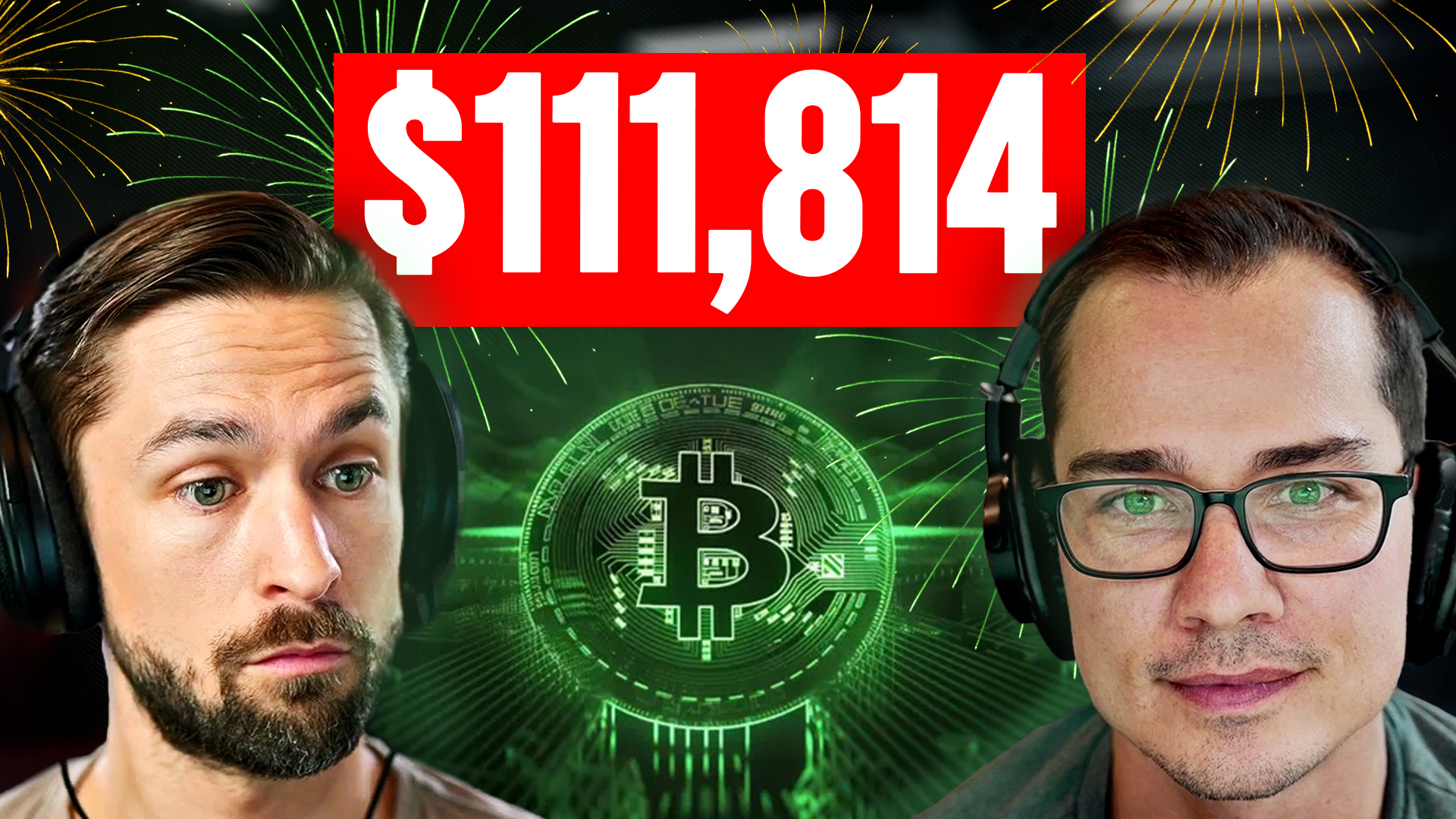Crypto’s Breakout Week! ATHs, ZK Breakthroughs, & a Stablecoin Bill That Might Actually Pass

A weekly breakdown of the most important crypto, macro, and policy moves—why they matter and where we might be headed next.
This was a week where everything clicked.
Bitcoin soared to a new all-time high—$111,512 to be exact—while Ethereum teased the beginning of an exponential scaling era. Meanwhile, Washington took its biggest step yet toward crypto legitimacy, and the bond market quietly showed signs of fracture. If you’re looking for signal in the noise, this week was it.
Let’s break it down.
1. Bitcoin Hits $111K — But Is the Real Pump Just Beginning?
Bitcoin’s new all-time high came with an asterisk. Yes, it broke records, but it did so in the middle of a volatile macro backdrop, with momentum building on the back of weak Treasury auctions and rising bond yields.
Markets aren’t just pumping on sentiment—they’re responding to structural stress. Investors are watching the U.S. balance sheet creak under $36 trillion in debt, and Bitcoin is increasingly behaving like the asset you rotate into when the old system starts to wobble. This wasn’t euphoria; it was rotation.
Stanley Druckenmiller’s classic advice—"concentrate your bets and watch them closely"—got a fresh airing on the podcast. And for Bankless host David, whose portfolio is 95% crypto, that might be just fine.
2. The GENIUS Stablecoin Bill Clears the Senate Gatekeeper
This was the biggest week for U.S. crypto legislation in years.
The GENIUS Act, a comprehensive stablecoin framework, passed a key procedural vote in the Senate with 69 votes—yes, nice—which included support from 16 Democrats. The bill creates clear rules around stablecoin issuance, reserves, audits, and bankruptcy prioritization. Critically, it opens the door for non-bank issuers while keeping large tech firms out.
Why does this matter? Because stablecoins are the bridge between crypto and the dollar—and they're currently a $250B market growing toward the trillions. If passed, the GENIUS Act could unlock a wave of institutional participation and bring clarity to fintechs, payment rails, and DeFi platforms alike.
Not everyone is thrilled. Elizabeth Warren, pictured grimacing on the Senate floor during the vote, is leading the charge against it. But with a wide bipartisan margin, opposition may not matter much longer.
3. America Couldn’t Sell Its Debt—And That’s a Problem
Buried under the headlines was a stark macro story: the U.S. held a 20-year Treasury auction this week, and demand was... weak. The government had to offer higher yields—above 5%—just to attract buyers. In bond market terms, that’s flashing red.
Why does this matter to crypto?
Because the traditional system depends on constant recycling of capital into U.S. debt. If that bid starts to dry up, the entire financial stack has to reprice—risk, rates, and ultimately currencies. And where does capital flee when confidence in sovereign debt starts to erode? You guessed it: gold and Bitcoin. (Both hit all-time highs this week.)
Arthur Hayes has been warning about this moment for months. It's no longer theoretical.
4. Ethereum’s ZK Miracle Could Scale Layer 1 to 10,000 TPS
While Bitcoin captured headlines, Ethereum made history—quietly.
This week, Ethereum researchers including Justin Drake and Uma from Succinct announced that real-time ZK proving is here. That’s not a marketing gimmick; it’s a technical leap. For the first time, zero-knowledge proofs can be generated faster than Ethereum's 12-second block time.
What does that unlock?
- Ethereum becomes a ZK rollup itself, potentially scaling to 10,000 transactions per second.
- Interoperability across L2s gets easier and faster.
- The L1 becomes more performant, secure, and sustainable.
This is the roadmap Ethereum has been building toward for years. And suddenly, it’s in reach. Even Vitalik might be surprised at how quickly it's moving.
5. Solana Goes Full Throttle With a New Consensus Engine
Not to be outdone, Solana announced its next big leap: a brand-new consensus layer, codenamed “Beam Chain.”
Built by infrastructure team Anza, this overhaul introduces modules like “Voter” and “Rotor,” which radically increase block finality speed and reduce gossip latency. Translation: faster, leaner, more centralized?
Some critics are raising concerns about validator concentration—just 7 validators may be enough to attack the network under this new system—but Solana continues to lean hard into speed and performance. It’s the Web2 approach to Web3, and it’s working (for now).
6. Texas Buys Bitcoin. Yes, the State of Texas.
If you needed one more sign that nation-states (and now U.S. states) are moving toward crypto, here it is: Texas passed a bill to create its own strategic Bitcoin reserve.
It’s not just Bitcoin either—the bill allows for the state to purchase any crypto asset with a market cap over $500B. That includes Ether, and perhaps others in the future.
Texas now joins El Salvador in taking direct treasury exposure to digital assets. It’s a symbolic moment that hints at what's coming: states, municipalities, and even sovereigns diversifying out of fiat.
What Does This All Mean?
We are deep into a structural shift. It’s not just a bull market—it’s a macro reconfiguration. The dollar is wobbling, political winds are shifting, and crypto is moving from the fringe to the core.
Bitcoin’s ATH isn’t the end—it’s the beginning. The stablecoin bill isn’t a one-off—it’s the foundation. Ethereum’s ZK leap isn’t hype—it’s execution. And Texas? Well, they just made it official: crypto isn’t just internet money anymore. It’s infrastructure.
Hold on. This next leg could be big.